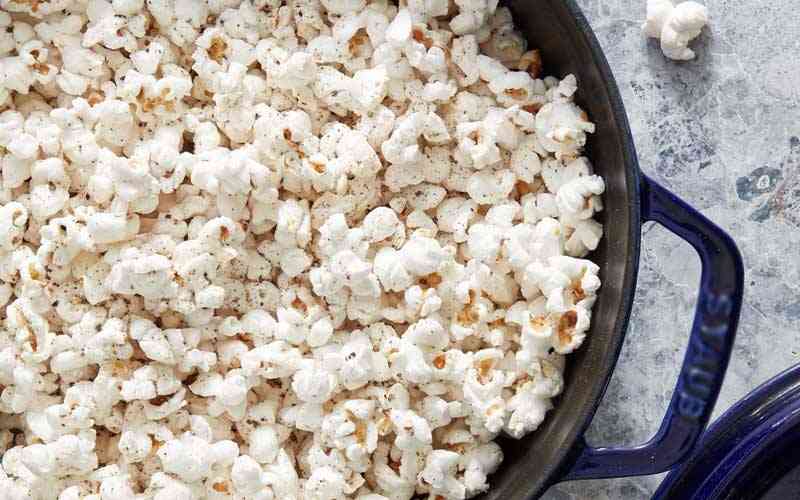
“Popcorn has made many lousy movies worth sitting through.” So said Orville Redenbacher, the person accredited with making popcorn a popular snack.
Indeed, popcorn is popularly associated now with cinemas, but also with television, fairs, parties and sports events.
It seems to go with entertainment. It has been pointed out, however, that some people will eat popcorn at cinemas, not because they like it but because they cannot stand hearing other people eating it.
What do we know of popcorn? Popcorn is said to be over 5000 years old while the first commercial popcorn machine was invented in 1885.
In the 1800s, popcorn was often eaten as a cereal with milk and sugar.
Popcorn is a healthy GMO-free and gluten-free snack.
Popcorn can reach up to three-feet in distance when popping. Not exactly life-changing information, but interesting perhaps.
By this stage, an astute reader may be asking the question: what has all this to do with education?
- The Soccer Whiz: It’s coming home, it’s coming home
- SuperSport sack Tembo
- School of sport: It’s my job
- School of sport: Plan and play
Keep Reading
The more interesting or, more importantly, relevant fact (than those above) might be that popcorn teaches us a great deal about education.
Let us just pause a moment and think of popcorn. What is required to produce the pop? Anyone who has cooked popcorn, or watched it being made, will know that heat is required to trigger the pop. Once again, we may say: so what?
We know that all those seed pieces are cooked in the same pot, at the same heat, in the same conditions, but they pop at different times.
They are not all cooked at the same time. That moment of popping can come any time. So what?
In a similar way, children flourish and come alive at different times in their lives. Not all will pop while at school. Some will pop much earlier than others.
Some children are early developers, but others develop later. As children grow physically at different rates, so too do others grow mentally, emotionally, intellectually at different rates.
Indeed, some of us are taller than others, underlining that some of us are more academic than others.
The bottom line is this: contrary to most parents’ thinking, not every child has to succeed at school.
There are numerous famous examples of this. Many sportsmen have come to the fore later in their careers.
Michael Hussey was first capped for Australia at the age of 30 and went on to play 79 Tests.
Norman Gifford made his One-Day International debut for England six days short of his 44th birthday.
In rugby, Andy Farrell first played for England aged 31 while Caderyn Neville last year made his debut for the Australian side four months short of his 34th birthday.
In literature, Richard Adams had his classic novel ‘Watership Down’ published when he was 52; Frank McCourt published his first book, ‘Angela’s Ashes’, aged 60 while the oldest debut novelist is said to be Lorna Page who published her book ‘A Dangerous Weakness’ at the ripe old age of 93.
One study has found that the average age of authors making their debut publications is 36.
In music, Mozart may have been a child prodigy, but there were plenty of other composers who flourished when older.
What else can we learn from popcorn? Popcorn will pop to different heights (if we do not put a lid on the pan).
In the same way, some children will ‘pop’ higher, will go further (if we do not put a lid on them).
A further obvious question may be asked: what is the point of popcorn?
Popcorn is there to be eaten, to be enjoyed, to fulfil some purpose. It may well come in different flavours; indeed, we would want them to do so. Do we need to ask the same question about education? Our children need to reach that point, albeit at different times in their lives, where they pop and become useful and purposeful. Do we allow our children to be the flavour that they (not we) wish to be in their life?
One final question about popcorn is relevant. What causes popcorn to pop? Popcorn needs heat to come alive, to spring into life, to pop.
The seeds do not sprout on their own; they need the pressure that comes from the heat.
In a similar way, children often need to have some degree of pressure in order for them to pop.
They need deadlines, tests, exams, competition to put them under pressure.
However, adding more pressure is not going to produce the pop in the children’s lives.
Does it really matter when they pop? Let them pop when they are ready.
Popcorn will make many lousy school careers worth sitting through. Chew on that for a while – quietly.
- Tim Middleton is the executive director of the Association of Trust Schools [ATS]. The views expressed in this article, however, are solely those of the author in his private capacity and do not necessarily represent the views of the ATS.
- email: ceo@atschisz.co.zw
- website: www.atschisz










